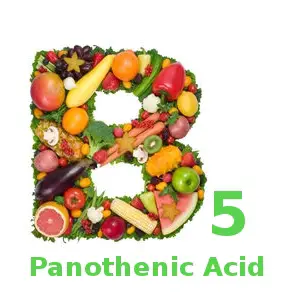Contributing Writers for Wake Up World
Stress is a common aspect of life and if not managed, can have negative consequences for our health. These consequences include direct impacts on mental health and the onset and progression of physical illness.
In 2008, studies showed that 21.2% of Canadian males (approximately 2.8 million) and 23.4% of Canadian females (3.2 million) aged 15 or older, reported that most days were quite a bit or extremely stressful.
With the advances of technology and the increasing demands of everyday life, it is reasonable to assume that these numbers have only increased. With all that we are dealing with, it is more important than ever to provide our body with the nutrition needed to cope with stress. Thankfully, the “stress vitamin” can help us.
[pro_ad_display_adzone id=”110028″]
The “stress vitamin” is vitamin B5, otherwise known as pantothenic acid. This vitamin is an important stress fighter. Deficiency of this vitamin will often cause under activity of the adrenal glands, leading to symptoms such as allergies, PMS, Candida, hypoglycaemia, endocrine disorders, and more. Without the natural vitality of our adrenals, everyday tasks become more and more difficult.
Listed below are three ways in which vitamin B5 can reduce stress:
1. It works to stimulate the production of neurotransmitters responsible for reducing physical and mental responses to stress. These neurotransmitters – including serotonin, dopamine and nor epinephrine – help to calm our central nervous system, which in turn can decrease anxiety associated with stress. In other words, they can help you stay calm during a stressful situation.
2. It aids in the metabolism of carbohydrates, fats and protein. Carbohydrates are converted to glucose, fats to fatty acids, and protein to amino acids. Through these conversions, our bodies are able to rebuild healthy brain and nerve cells, which may help reduce stress.
3. It reduces low-density lipoprotein (LDL cholesterol) and triglyceride levels in our bloodstream, which can reduce fatty deposits in our arteries and improve blood flow. By improving our blood flow, we may enhance the delivery of vitamins, minerals and essential fatty acids to our brain, which are needed for proper functioning and for the production of anti-stress hormones.
Fortunately, this vitamin is found in a wide variety of foods. Dietary sources include eggs, whole grains, wheat germ, bran, green vegetables, brewer’s yeast, nuts, legumes, salmon, mushrooms, and oranges. Supplementation may at times be necessary if one is under significant stress or is not eating a wholesome balanced diet. When choosing to supplement with B5 it is best to choose a B Complex. B vitamins are meant to be taken in a very specific ratio. Taking only one B vitamin can in effect deplete the others. A good quality B Complex will provide adequate amounts of B5 while correctly balanced with the other B vitamins.
Although B5 can help us cope with stress, it is also very important to not stress about isolate nutrients. By eating a healthy balance diet full of colourful, live foods, we can have the peace of mind that our body is getting what it needs to cope with stress.
Your question(s): Do you take a B Complex supplement? (post your comments below)
Sources:
1. statcan.gc.ca
2. livestrong.com
About the Authors
Jordan & Kyla are passionate about health; together, they have overcome many illnesses through dietary and lifestyle changes, and the art of practicing a positive mindset daily. Kyla is currently studying to become a Registered Holistic Nutritionist and Reiki Master, and Jordan is currently learning about traditional North American medicinal herbs, in hopes of becoming a Certified Herbalist. For more information, please visit the following sites; guidinginstincts.com, Facebook, Twitter, Google+, or Pinterest
[pro_ad_display_adzone id=”110027″]







